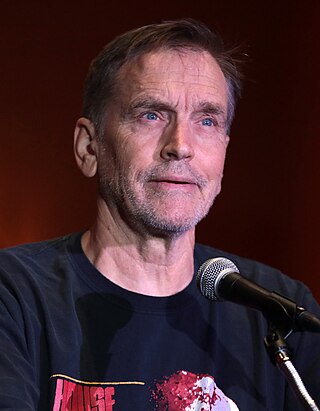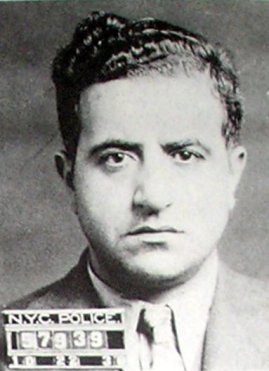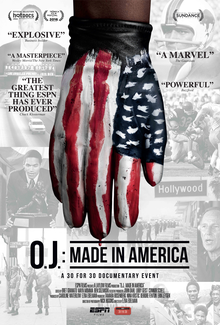
Charles "Lucky" Luciano was an Italian-born gangster who operated mainly in the United States. He started his criminal career in the Five Points Gang and was instrumental in the development of the National Crime Syndicate. Luciano is considered the father of modern organized crime in the United States for the establishment of the Commission in 1931, after he abolished the boss of bosses title held by Salvatore Maranzano following the Castellammarese War. He was also the first official boss of the modern Genovese crime family.

Frank Costello was an Italian-American crime boss of the Luciano crime family.

In the early hours of March 13, 1964, Kitty Genovese, a 28-year-old bartender, was raped and stabbed outside the apartment building where she lived in the Kew Gardens neighborhood of Queens, New York, United States. Two weeks after the murder, The New York Times published an article erroneously claiming that thirty-eight witnesses saw or heard the attack, and that none of them called the police or came to her aid. The incident prompted inquiries into what became known as the bystander effect, or "Genovese syndrome", and the murder became a staple of U.S. psychology textbooks for the next four decades.
The bystander effect, or bystander apathy, is a social psychological theory that states that individuals are less likely to offer help to a victim in presence of other people. First proposed in 1964 after the murder of Kitty Genovese, much research, mostly in psychology research laboratories, has focused on increasingly varied factors, such as the number of bystanders, ambiguity, group cohesiveness, and diffusion of responsibility that reinforces mutual denial. If a single individual is asked to complete the task alone, the sense of responsibility will be strong, and there will be a positive response; however, if a group is required to complete the task together, each individual in the group will have a weak sense of responsibility, and will often shrink back in the face of difficulties or responsibilities. The theory was prompted by the murder of Kitty Genovese about which it was wrongly reported that 38 bystanders watched passively.

The Texas Chainsaw Massacre 2 is a 1986 American black comedy slasher film co-composed and directed by Tobe Hooper and written by L. M. Kit Carson. It is the sequel to The Texas Chain Saw Massacre (1974) and the second installment in The Texas Chainsaw Massacre film series. The film stars Dennis Hopper, Caroline Williams, Bill Johnson, Bill Moseley, and Jim Siedow. The plot follows Vanita "Stretch" Brock, a radio host who is victimized and abducted by Leatherface and his cannibalistic family; meanwhile, Lt. Boude "Lefty" Enright, the uncle of Sally and Franklin Hardesty—both prior victims of the family—hunts them down.

Vito Genovese was an Italian-born American mobster of the American Mafia. A long-time associate and childhood friend of Lucky Luciano, Genovese took part in the Castellammarese War and helped shape the rise of the Mafia as a major force in organized crime in the United States. He would later lead Luciano's crime family, which was later renamed the Genovese crime family in his honor.

Robert Sawyer, better known as "Chop-Top" is a fictional character from The Texas Chainsaw Massacre franchise; created by Tobe Hooper and L. M. Kit Carson, Chop-Top makes his first appearance in the film The Texas Chainsaw Massacre 2 (1986) as one of the film's villains and the main source of its black humor.
Abraham Michael "Abe" Rosenthal was an American journalist who served as The New York Times executive editor from 1977 to 1986. Previously he was the newspaper's metropolitan editor and managing editor. Following his tenure as executive editor, he became a columnist (1987–1999). Later, he had a column for the New York Daily News (1999–2004).

Joseph Lyle Menéndez and Erik Galen Menéndez are American brothers who were convicted in 1996 of the murders of their parents, José and Mary Louise "Kitty" Menéndez.

William Moseley is an American actor, primarily known for his performances in horror films. His best-known roles include Chop Top in The Texas Chainsaw Massacre 2 (1986), Otis B. Driftwood in Rob Zombie's Firefly trilogy, Luigi Largo in Repo! The Genetic Opera (2008), and The Magician in Alleluia! The Devil's Carnival (2015). He had a recurring role as camp cook Possum on the HBO TV series Carnivàle (2003–05). He has also released records with guitarist Buckethead in the band Cornbugs, as well as featuring on the guitarist's solo work.
James Seipei, also known as Stompie Moeketsi or Stompie Sepei, was a teenage United Democratic Front (UDF) activist from Parys, South Africa. He and three other boys were kidnapped on 29 December 1988 by members of Winnie Mandela's bodyguards. He was murdered on 1 January 1989, the only one of the boys to be killed.

Death Scream is a 1975 American made-for-television crime drama film loosely based on an actual event concerning the real-life account of "a young woman whose murder was witnessed by fifteen of her neighbors who did nothing to help and refused to cooperate with the police." It originally aired on ABC on September 26, 1975.
Jim Rasenberger is an American writer, born in Washington, D.C. and living in New York City. He has published four books, and contributed to many publications, especially the New York Times, Vanity Fair, and Smithsonian.

Albert A. Seedman was an officer with the New York City Police Department (NYPD) for 30 years, known for solving several high-profile cases before resigning as chief of the Detective Bureau. He was the only Jewish officer to ever hold that position. After his retirement he was the chief of security for a New York area department store chain before retiring to South Florida.

Umberto "Albert" Anastasia was an Italian-American mobster, hitman and crime boss. One of the founders of the modern American Mafia, and a co-founder and later boss of the Murder, Inc. organization, he eventually rose to the position of boss in what became the modern Gambino crime family. He also controlled New York City's waterfront for most of his criminal career, mainly through the dockworker unions. Anastasia was murdered on October 25, 1957, on the orders of Vito Genovese and Carlo Gambino; Gambino subsequently became boss of the family.
Charles Skoller was an American prosecutor and author. He was an assistant district attorney for Queens County, New York City and while in that position prosecuted Winston Moseley, the murderer in the infamous Kitty Genovese case. Later after his retirement he wrote a book about that and another noted case he prosecuted in a volume entitled "Twisted Confessions: The True Story Behind the Kitty Genovese and Barbara Kralik Murder Trials". Skoller died in Boca Raton, Florida on February 17, 2012, at the age of 79.

O.J.: Made in America is a 2016 American documentary, produced and directed by Ezra Edelman for ESPN Films and their 30 for 30 series. It was released as a five-part miniseries and in theatrical format. O.J.: Made in America premiered at the Sundance Film Festival on January 22, 2016, and was theatrically released in New York City and Los Angeles in May 2016. It debuted on ABC on June 11, 2016, and aired on ESPN.

Catherine Pelonero is a New York Times bestselling true crime author, best known for her 2014 book Kitty Genovese: A True Account of a Public Murder and Its Private Consequences.
Harold Takooshian is an American psychologist, scholar, and professor at Fordham University. He is best known as an expert on the Kitty Genovese murder case, having spent many years studying the subject and the role that the "bystander effect" played therein.
Michael Joseph Murphy was an American law enforcement officer who served as New York City Police Commissioner from 1961 to 1965.












